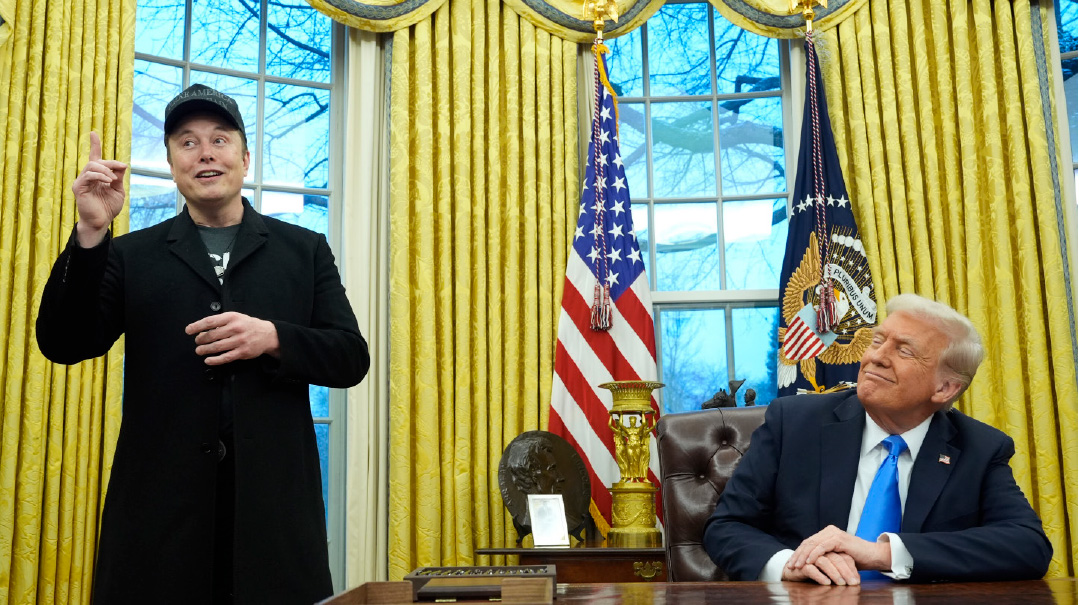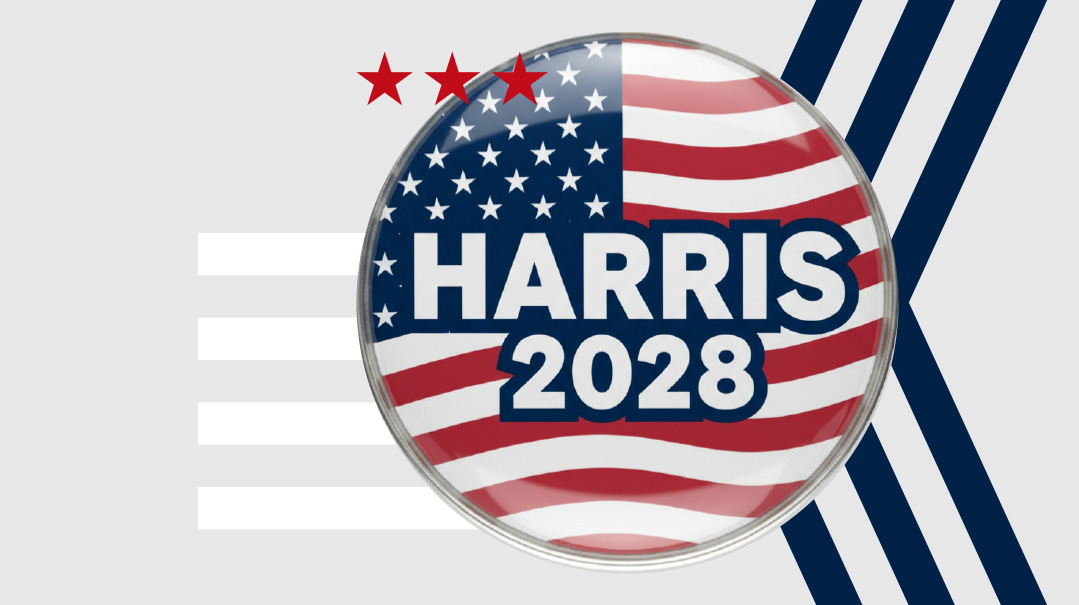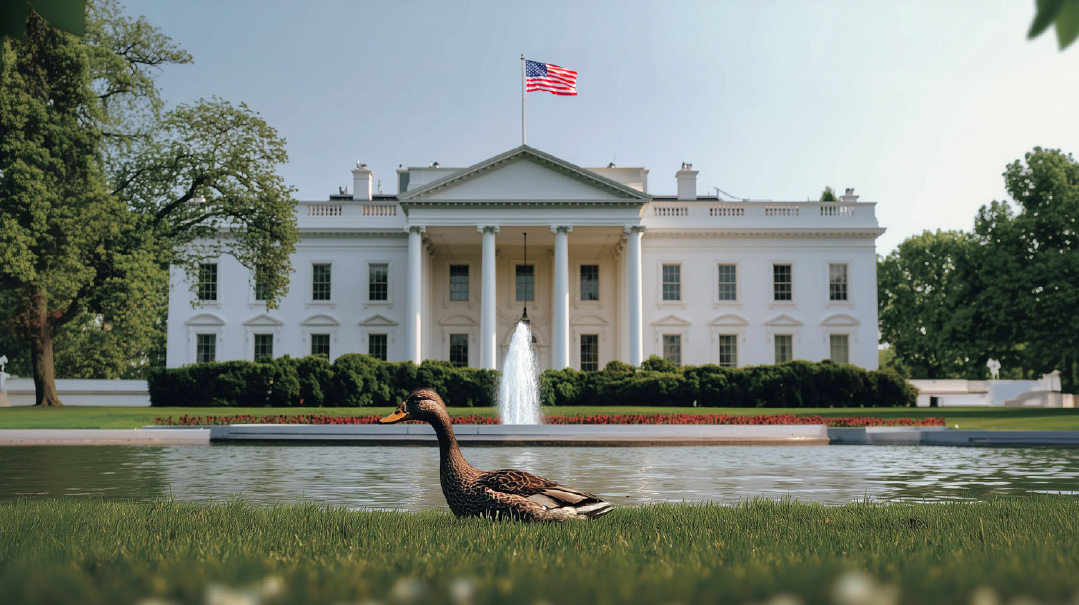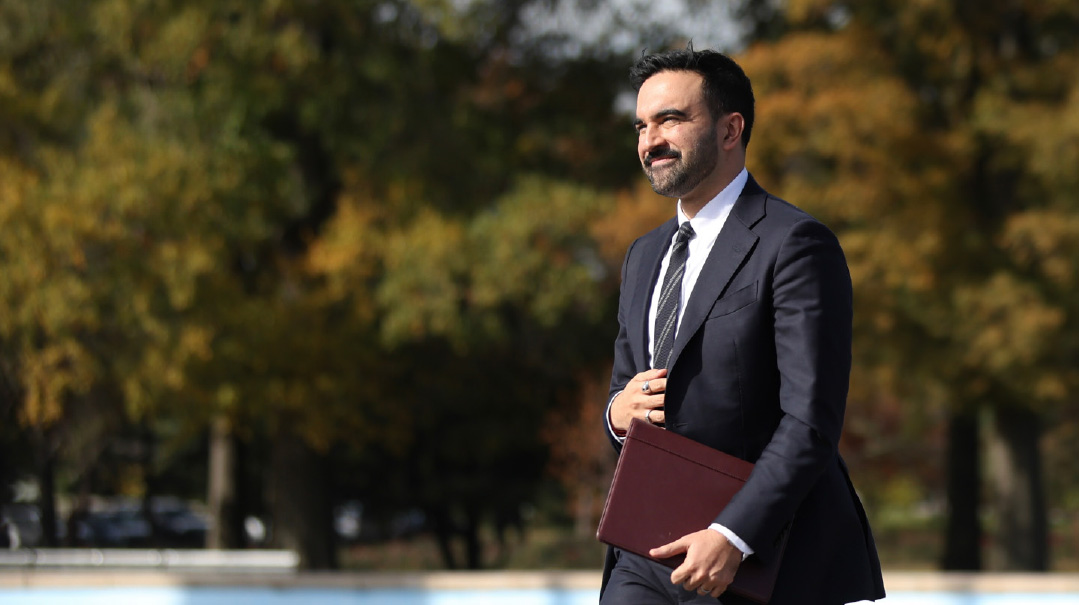How Long Will Musk Stay with Trump?

Can two personalities as large as Musk and Trump coexist?

Photo: AP Images
A
Quinnipiac poll shows 55 percent of respondents believe he has too much power. Crowds gathered in states like North Carolina and Illinois to protest him. Republican senators have even reportedly begun to vent their frustrations privately about his tactics.
Who else could we be talking about but Elon Musk? The wealthiest man in the world is now also the most prominent face of the Trump administration. With speed that makes Trump decision-making look slow, with a media platform that dwarfs Truth Social, and with an army of followers that is at times indistinguishable from MAGA — is Musk overshadowing the president? More than that, can two personalities as large as Musk and Trump coexist?
History provides some guide.
Many presidents have been overshadowed by members of their cabinet. Alexander Hamilton’s positions often outshone George Washington’s. Henry Kissinger shared the glory and spotlight with Richard Nixon when both were named as Time magazine’s “Men of the Year.” Dick Cheney was accused of being a “shadow president” for George W. Bush.
Presidential cabinets attract major personalities who help shoulder key initiatives and oversee entire departments. The key question for any president is: Are these individuals shadows or lightning rods? The former is a nuisance that is hard to detach from, whereas the latter is helpful in deflecting criticism.
For example, Woodrow Wilson suffered a stroke in 1919, and his wife Edith quickly took over control of his schedule and activities. This is the definition of a shadow presidency. Wilson’s wife had as much power as he did, if not more, during the latter half of his second term. The same could be said for whoever was running the White House during the Biden administration.
A lightning rod is an entirely different matter. For example, generals have often deflected criticism that otherwise would be directed at a president. General Douglas MacArthur did this during the Korean War, and General George McClellan did it during the Civil War. But when they overstepped their bounds, both were fired, by Presidents Truman and Lincoln respectively.
A shadow is hard to remove, but a lightning rod can be fired when he is no longer valuable.
I believe Musk is a lightning rod and not a shadow. Here’s my metric: Musk is technically speaking not a cabinet member. Nothing forces Trump to keep Musk or listen to his opinions. Republican senators complaining about Musk takes criticism off Trump. Protestors rallying against Musk at Tesla stores takes criticism off Trump. The latest proof of this came when Musk’s Department of Government Efficiency asked federal employees to report on their work, and their agency heads told them to ignore him. The power remains with the president.
But lightning is spectacular, even fun to watch. Can Musk continue to coexist with Trump?
It’s no secret that Trump wants to be the center of political attention. The question is what happens when Musk horns in.
There are two kinds of attention — good and bad.
Podcaster Joe Rogan recently interviewed Musk about his government work. Musk has also tentatively agreed to appear on The Daily Show with Jon Stewart, a popular political comedy show. To me, this is the kind of bad attention that Trump will likely hate. Musk wasn’t elected, and any imaging or messaging that focuses on his role at the expense of Trump’s will jeopardize their relationship.
While these interviews are taking place, Musk is attracting another form of attention: He’s one of the top talking points for constituents of members of Congress. It has been widely reported how many congressional town halls have devolved into complaints about Musk. This, to me, is the good kind of attention that Trump loves. Musk can take the negative criticism for the cuts while Trump stays slightly above the fray.
As it stands, there is still more good attention than bad. Trump and Musk remain in the limelight together, while Musk takes most of the negative attention. But how long can this last? If Musk’s programs are successful, won’t he outshine Trump? And if Musk’s programs fail, won’t he be too much of a liability for Trump to keep around?
I predicted in December that Musk will get bored and move on. I still believe Musk will leave, but I don’t think it will be due to boredom. The balancing act is hard to maintain, and accusations that Musk is a shadow president and not just a lightning rod will begin to wear on Trump, especially if Musk begins to pick up more attention, whether good or bad. I continue to believe this relationship and Musk’s role will shrink as Trump’s administration solidifies in the coming weeks and months.
POLITICAL INTEL
I continue to hear that the Republican Party is increasingly nervous about the 2026 midterms. Perhaps the contentious town halls are adding to the anxiety, but what I’ve heard predates a lot of the current climate. The feeling is that the House of Representatives will be very difficult to defend in 20 months, and there is growing talk of losing the House majority. That’s a very long time from now in politics, but midterms are where the party not in the White House typically rebounds.
FEARLESS FORECAST
Scorecard:
Bad pick with my prediction that all of Trump’s nominations would sail through once the Hegseth pick cleared. Elise Stefanik’s nomination as United Nations Ambassador remains stalled.
Great pick on my John Fetterman prediction, as political commentator Bill Maher called the Pennsylvania senator someone the Democratic Party should pick for 2028. This goes with my prediction that Fetterman will be a top-five politician in 2025. Fetterman has the ear of the White House and continues to build a national profile.
This Week’s Picks:
Trump’s address to Congress doesn’t move the needle. These addresses are not what they used to be. They used to trumpet new policies and trigger major news cycles. Trump makes the news daily and doesn’t need this platform. Congress moves at a glacier’s pace. I don’t see this making waves, and by my next column, I believe the entire address will be squarely in the rearview mirror.
Vivek Ramaswamy doesn’t become the frontrunner, but Byron Donalds does. Ramaswamy announced his bid to become Ohio’s governor at about the same time Donalds announced his run for Florida governor. Both immediately received Trump’s endorsement. I think Donalds remains the front-runner, but I don’t see it for Ramaswamy. The difference is in their local political bases, which I believe are key to winning gubernatorial races. Donalds, as a sitting congressman, has more of a local base than does Ramaswamy, who hasn’t won any political office.
(Originally featured in Mishpacha, Issue 1052)
Oops! We could not locate your form.







